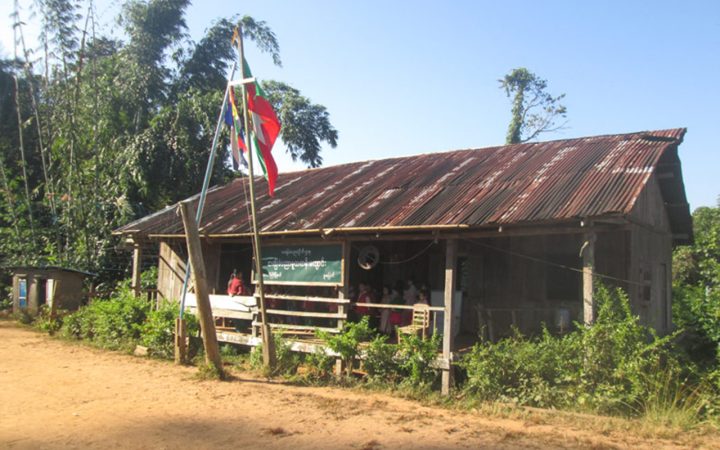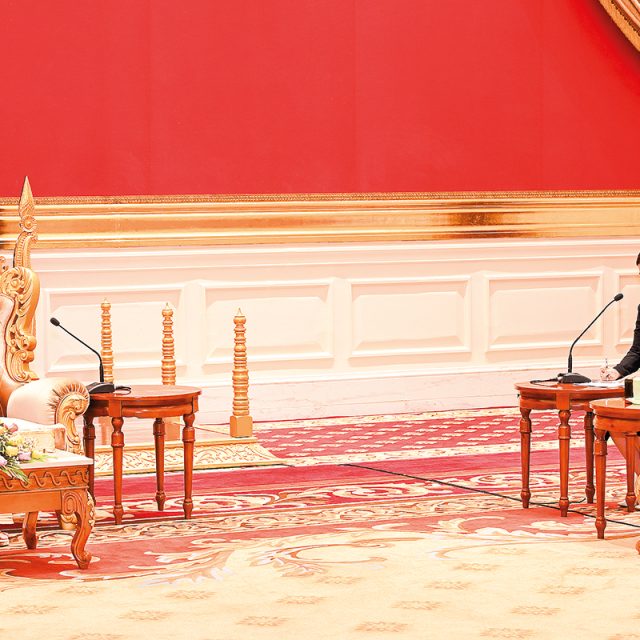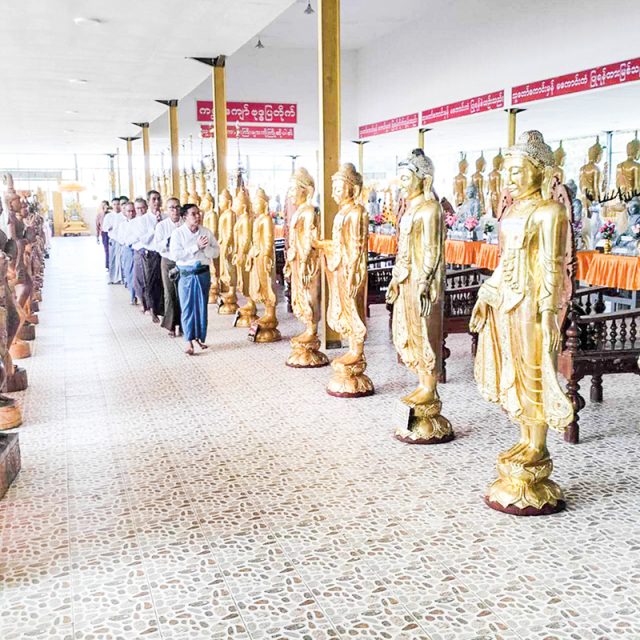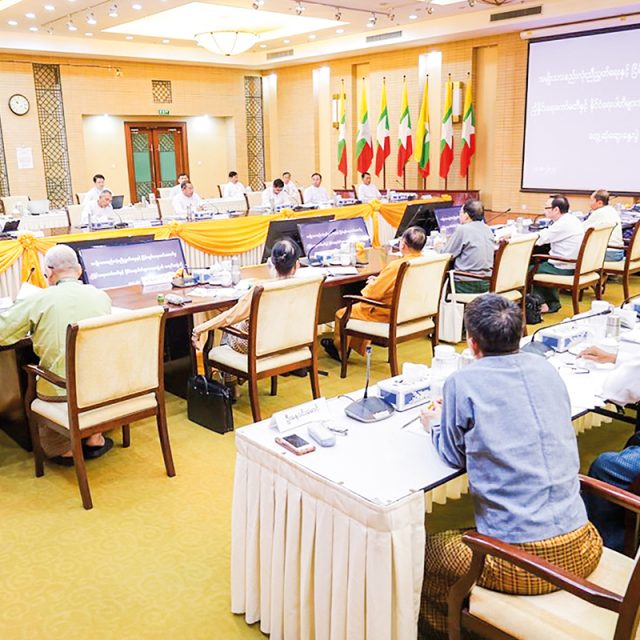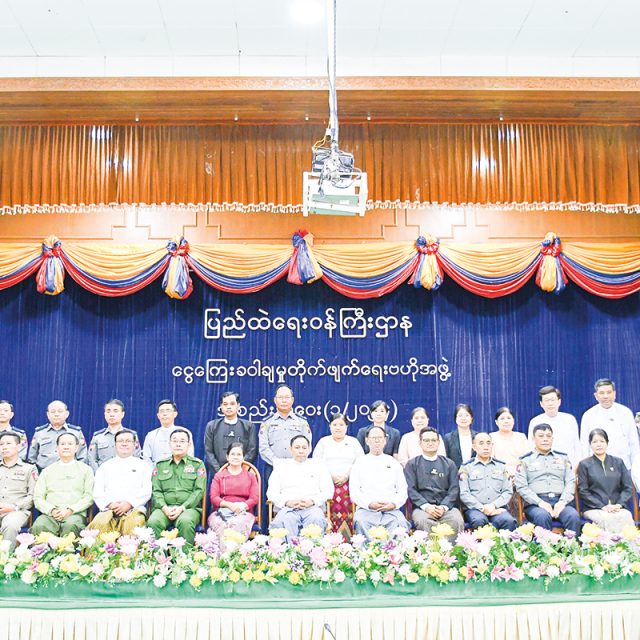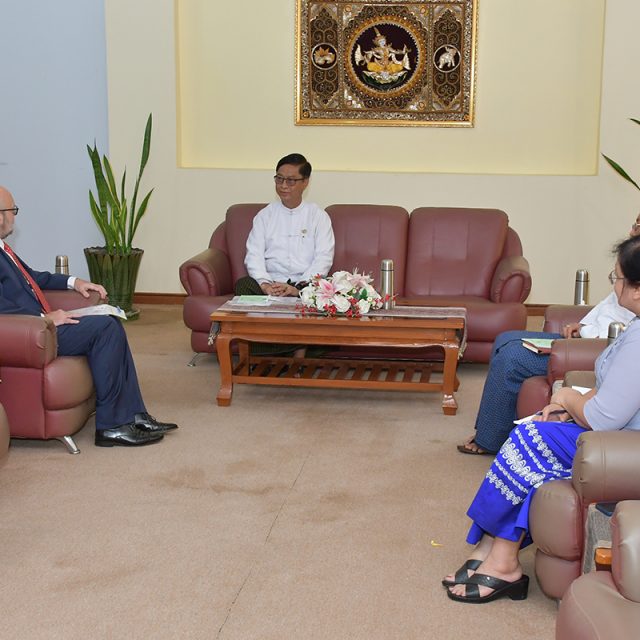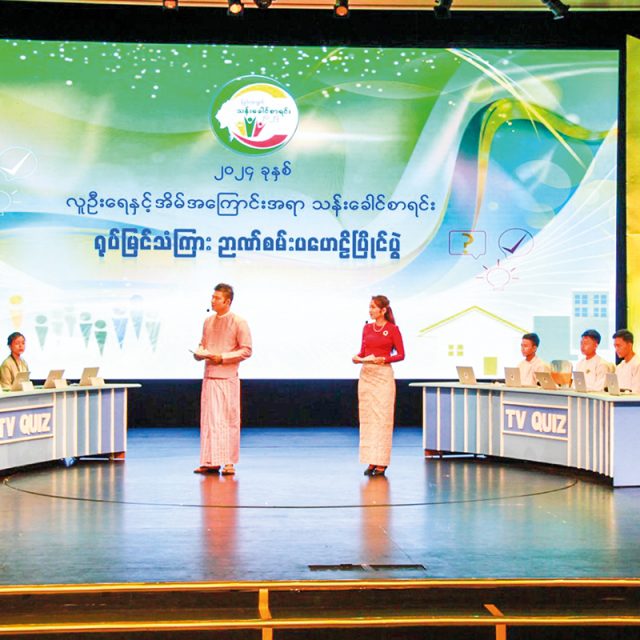As soon as May Thu rang the bell, all the students rushed inside because it started raining. She sat down in the armchair, sighed deeply, and began preparing the question forms for the upcoming monthly test. May Thu graduated from The Yangon University of Education and had been transferred to a primary school in Moe Pyar village due to a shortage of teachers. Moe Pyar was a poor village, and the villagers did not prioritize education. They preferred to work and earn money instead of sending their children to school. This presented a significant challenge for May Thu when she first arrived.
May Thu had hoped to be transferred to an excellent high school near her home. However, things did not go as she wished, and she had no choice but to accept the assignment. The village was far from her home, so she had to stay in the village during weekdays and could only go home on weekends. Sometimes, she couldn’t even go home on weekends, especially when she had to prepare for monthly tests. As the youngest teacher who could handle all responsibilities related to the school, she was often overwhelmed. There were only two teachers at the school: Daw Tin Htay Lwin and May Thu. But after two months, Daw Tin Htay Lwin retired, leaving May Thu as the only teacher responsible for the students.
Managing the school wit h fifty students on her own was incredibly challenging for May Thu. The most disheartening aspect was the lack of parental support for their children’s education. Many parents did not see the value in sending their children to school because of their low living standards. One day, May Thu visited Ahar Warr’s house because he had been absent from school.
“Is there anyone? Is Ahar Warr here?” she shouted. A woman came out and replied, “He is not here. He is in the field, doing his own work. And who are you?”
“I’m Ahar Warr’s teacher. I came here because he has been absent for a few days,” May Thu explained.
“Oh! I see, Miss Teacher. But I have to say that we cannot send him to school anymore because we need to survive first. No one gives us free food for no reason. You must understand, Miss Teacher,” the woman responded.
These were typical conversations May Thu had about her students. Sometimes, she would see Daw Bhu Ma, a fish seller and the mother of Ei Phyu Sin, another student.
“Oh! Daw Bhu Ma, why didn’t Ei Phyu Sin come to school yesterday? Is she sick?” May Thu asked.
“No, Miss Teacher, she is selling fish in another village. And by the way, she won’t be going to school anymore because she has to work instead of wasting her time,” Daw Bhu Ma replied before continuing her rounds, hawking her fish.
Despite these challenges, May Thu found solace in her students, who were eager to learn and play like all children. Their innocent faces, smiles, and words were flawless and gave her the strength to keep going. She hoped that one day, she could educate more children from this village and help them become great people who could contribute to the country.
One particular student, Ei Phyu Sin, always greeted May Thu warmly with “Mingalar Par Sayarma” (Hello, Teacher) every morning. This simple greeting filled May Thu with hope and determination. She believed that through education, the children of Moe Pyar could have a better future.
Overcoming Obstacles
May Thu’s journey in Moe Pyar village was not an easy one. The villagers’ reluctance to send their children to school was rooted in their daily struggles to make ends meet. Many of them worked as farmers, fish sellers, or labourers, barely earning enough to feed their families. Education seemed like a luxury they couldn’t afford. However, May Thu was determined to change their mindset.
She started by visiting the homes of her students to talk to their parents. She explained the importance of education and how it could improve their children’s lives in the long run. She used examples of successful individuals who had come from similar backgrounds and emphasized that education was the key to breaking the cycle of poverty.
One of her most memorable visits was to the home of Hla Hla Win, a bright girl with a keen interest in learning. Hla Hla Win’s parents were hesitant to send her to school because they needed her help in the fields. May Thu patiently explained how Hla Hla Win’s education could lead to better job opportunities and a more stable future for the family. After much persuasion, Hla Hla Win’s parents agreed to let her attend school regularly.
Building Trust and Encouraging Attendance
Building trust with the villagers was crucial. May Thu organized community meetings where she invited parents to discuss their concerns and learn more about the benefits of education. She also involved the village elders, who were respected figures in the community, to advocate for schooling. Gradually, more parents started to see the value of education and began sending their children to school. To make the school more appealing, May Thu introduced various activities and programs. She organized sports events, art competitions, and cultural festivals, which not only made learning fun but also showcased the talents of the students. These events brought the community together and fostered a sense of pride and unity.
May Thu also implemented a reward system to encourage regular attendance. Students who attended school consistently and performed well in their studies received small prizes, such as notebooks, pencils, and storybooks. This initiative motivated the children and made them look forward to coming to school.
Improving the School Environment
The primary school in Moe Pyar was in a dilapidated state when May Thu first arrived. The classrooms were dark and cramped, with broken furniture and limited resources. May Thu knew that creating a conducive learning environment was essential for the student’s growth and development.
She started by rallying the villagers to help with the repairs. Together, they fixed the roofs, painted the walls, and built new desks and chairs. The villagers’ involvement in the renovation process instilled a sense of ownership and responsibility towards the school.
May Thu also reached out to NGOs and government agencies for support. She managed to secure donations of books, stationery, and teaching aids, which greatly improved the quality of education. With better resources, she was able to introduce new subjects and extracurricular activities, such as science experiments, gardening, and storytelling sessions. As she was not a strong male teacher, those activities made her very exhausted. But she never gave up.
Fostering a Love for Learning
May Thu’s teaching methods were innovative and engaging. She believed in making learning interactive and hands-on, which helped the students grasp concepts better. Instead of relying solely on textbooks, she used real-life examples and practical demonstrations to explain lessons.
For instance, during a science lesson about plants, May Thu took the students to the village fields to observe different types of crops and learn about their growth process. She also encouraged the students to ask questions and explore their surroundings, fostering a sense of curiosity and discovery.
In language classes, May Thu used storytelling and drama to make learning enjoyable. She organized reading sessions where students could read aloud and discuss stories, improving their reading and comprehension skills. She also introduced creative writing exercises, encouraging the students to express their thoughts and ideas through writing.
Empowering Students and Building Confidence
One of May Thu’s main goals was to empower her students and build their confidence. She believed that every child had the potential to succeed, regardless of their background. She encouraged her students to dream big and work towards their goals.
May Thu identified the strengths and interests of each student and provided opportunities for them to shine. She supported Hla Hla Win in her passion for mathematics, helping her participate in inter-school math competitions. Hla Hla Win’s success in these competitions boosted her self-esteem and motivated her to pursue higher education.
Another student, Kyaw Min, showed a talent for art. May Thu organized an art exhibition in the village, showcasing Kyaw Min’s paintings along with the works of other students. The exhibition received widespread appreciation from the community and inspired Kyaw Min to consider a career in art.
The Impact of Education
May Thu’s dedication and efforts start to bear fruit. More children began attending school regularly, and their academic performance improved significantly. The parents, who were initially sceptical, began to see the positive changes in their children. They realized that education was not a waste of time but a valuable investment in their future.
The village also began to change. With educated children, the villagers started to think differently about the importance of learning and personal growth. They began to understand that education could open doors to new opportunities and a better quality of life.
Looking Towards the Future
May Thu’s journey in Moe Pyar village was a testament to the transformative power of education. Despite the challenges and obstacles, she remained committed to her mission of educating the children and improving their lives. Her determination, patience, and innovative teaching methods made a lasting impact on the community.
May Thu’s story spread beyond Moe Pyar village, inspiring other teachers and educators to follow her example. She was invited to speak at educational conferences and workshops in the town, where she shared her experiences and strategies for overcoming challenges in rural education.
As the years passed, many of May Thu’s students graduated from primary school and continued their education in higher institutions. Some of them pursued careers in teaching, healthcare, engineering, and other fields, becoming role models for the younger generation.
May Thu continued to teach in Moe Pyar village as a headmistress of that primary school because she happened to marry a young man in the village, her passion for education undiminished. She remained dedicated to her students and their dreams, constantly finding new ways to make learning meaningful and enjoyable.
May Thu’s story is a powerful reminder of the difference one dedicated teacher can make in the lives of many. Her journey in Moe Pyar village exemplifies the importance of education in breaking the cycle of poverty and empowering individuals to achieve their full potential.
Through her perseverance and innovative teaching methods, May Thu not only educated her students but also transformed the community’s perception of education. Her impact reached far beyond the classroom, fostering a love for learning and a belief in the power of education to create a brighter future.
May Thu’s students will forever remember her as the teacher who believed in them, encouraged them to dream big, and guided them towards a better life. Her legacy will continue to inspire future generations, proving that with dedication, passion, and resilience, one person can truly make a difference.

